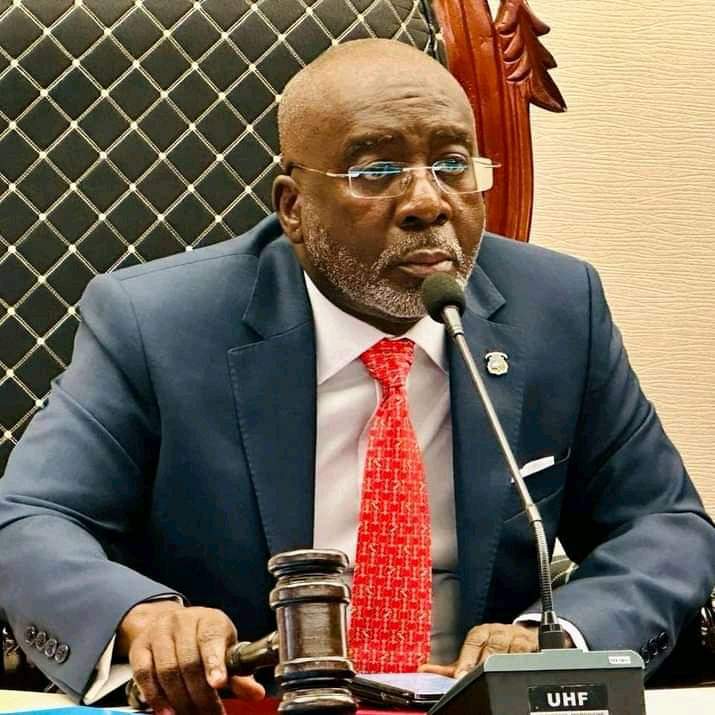The political landscape in Liberia is embroiled in a power struggle centered around the speakership of the House of Representatives. Embattled Speaker J. Fonati Koffa finds himself in a precarious position, engaged in delicate negotiations that will determine his future at the helm of the legislative body. While rumors of his resignation swirl, Speaker Koffa maintains that no final decision has been reached, emphasizing that these discussions are occurring behind the scenes. He has publicly stated his commitment to upholding the rule of law, particularly in light of a recent Supreme Court ruling that has further complicated the situation. This ruling, which has been met with mixed interpretations and even dissent within the legal community, adds another layer of complexity to the ongoing political stalemate.
The Supreme Court’s decision stems from a dispute over Speaker Koffa’s removal by a majority bloc within the House of Representatives. The Court ruled that the removal was unlawful, characterizing the action as “ultra vires,” or beyond the powers granted to the legislative body. Despite this ruling, the impasse within the House remains unresolved, fueling uncertainty and political tension. President Joseph Boakai’s subsequent declaration that he will work with the existing quorum, regardless of the Court’s ruling, has further inflamed the situation. This declaration has been interpreted by some as a blatant disregard for the rule of law and a direct challenge to the authority of the Supreme Court.
The President’s stance has ignited a firestorm of debate, drawing criticism from legal experts and opposition figures who accuse him of undermining the judicial process. This contentious political climate has also revealed fissures within the Liberian Bar Association (LBA). The LBA President, Cllr. Bonor M. Varmah, issued a statement expressing disagreement with the Supreme Court’s ruling, arguing that it sets a dangerous precedent. This statement, however, was met with strong backlash from within the legal community, with many lawyers criticizing Cllr. Varmah for issuing it unilaterally without consulting the LBA’s Executive Council. Some have even called for contempt charges against him, accusing him of violating ethical standards and undermining the integrity of the Supreme Court.
Speaker Koffa’s own statement reflects the delicate balancing act he must perform in navigating this complex political terrain. While acknowledging the rumors and concerns surrounding his position, he emphasizes his commitment to respecting the Supreme Court’s decision. He is engaging in consultations with various stakeholders, including members of the legislature from both sides of the divide, to determine the most appropriate course of action. He has pledged to keep the public informed as these discussions progress, urging citizens to avoid spreading unsubstantiated rumors that could further exacerbate the existing tensions.
This intricate political drama unfolds against a backdrop of uncertainty and apprehension. The ongoing power struggle within the House of Representatives raises fundamental questions about the rule of law, the separation of powers, and the stability of Liberia’s democratic institutions. The conflicting interpretations of the Supreme Court’s ruling, coupled with the President’s controversial stance, threaten to further polarize the political landscape and undermine public trust in the government. The internal discord within the LBA, exemplified by the controversy surrounding Cllr. Varmah’s statement, underscores the deep divisions that this crisis has created within the legal profession itself.
The unfolding events in Liberia highlight the fragility of democratic processes, particularly in nascent democracies. The resolution of this political impasse will require careful negotiation, compromise, and a steadfast commitment to upholding the rule of law. The actions of key players, including Speaker Koffa, President Boakai, and the members of the legislature, will have a profound impact on the future of Liberia’s political stability and the integrity of its democratic institutions. The international community will undoubtedly be watching closely as this complex political drama unfolds, hoping for a peaceful resolution that reinforces the principles of democracy and the rule of law.














